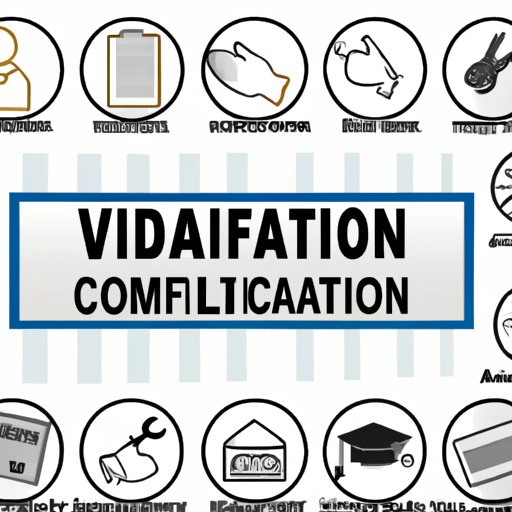Introduction
Financial advisors play an important role in helping individuals and businesses make informed decisions about their money. They provide advice on investments, taxes, retirement planning, insurance and other financial topics. Understanding the necessary qualifications and credentials required to become a financial advisor is essential for those considering pursuing this career path.

Exploring the Qualifications and Credentials Required to Become a Financial Advisor
In order to become a professional financial advisor, you must first understand the certifications and licenses that are necessary. Depending on the type of services you plan to offer, there may be additional requirements beyond the basic certifications. For example, if you plan to offer investment advice, you will need to obtain a Series 7 license from the Financial Industry Regulatory Authority (FINRA). If you plan to offer insurance advice, you will need to obtain the appropriate state-level license.
The Different Types of Licenses and Certifications Needed to Work as a Financial Advisor
In addition to obtaining the necessary licenses and certifications, there are also a number of education and training requirements that must be met in order to become a financial advisor. Most commonly, a bachelor’s degree in finance, economics, accounting or a related field is required. In some cases, a master’s degree or other advanced degrees may be preferred. Additionally, many financial advisors pursue various industry certifications such as the Certified Financial Planner (CFP) designation or the Chartered Financial Analyst (CFA) designation.

Examining the Essential Skills and Expertise Needed to Pursue a Career as a Financial Advisor
In addition to the necessary qualifications and credentials, financial advisors must also have a variety of technical skills and knowledge in order to effectively advise clients. This includes understanding financial products and markets, being able to analyze data and develop sound strategies, and having a good working knowledge of regulations and compliance. Financial advisors must also have strong interpersonal skills in order to build trust with clients and effectively communicate complex financial concepts.
Conclusion
Becoming a financial advisor requires a combination of certifications, licenses, education, training and expertise. While the exact credentials and qualifications may vary depending on the type of services you plan to offer, it is important to ensure that you meet all of the necessary requirements before pursuing a career in financial advising. With the right qualifications and credentials, you can launch a successful and rewarding career as a financial advisor.
(Note: Is this article not meeting your expectations? Do you have knowledge or insights to share? Unlock new opportunities and expand your reach by joining our authors team. Click Registration to join us and share your expertise with our readers.)
